How to navigate graphic teen dramas with your kids
Graphic teen dramas such as Euphoria and 13 Reasons Why are now a part of our television landscape — and we know kids are going to watch them — so how do parents address the myriad issues that are brought to light?
TV
Don't miss out on the headlines from TV. Followed categories will be added to My News.
Graphic teen dramas such as Euphoria and 13 Reasons Why are now a part of our television landscape. And with kids more vulnerable than ever before, a leading Australian youth psychologist is suggesting that parents should become more involved with their children when watching them.
When Euphoria first landed in June last year, some sections of the community were horrified and called for HBO’s controversial teen drama to be immediately taken off the air.
There were graphic and violent sex scenes, statutory rape, extreme drug use and the now-infamous scene where more than 30 penises swing freely across the screen.
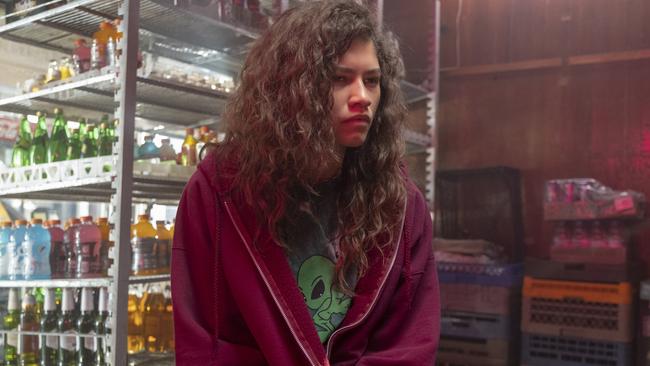
Dr Rachael Murrihy, a clinical psychologist and director of The Kidman Centre, UTS, watched a number of episodes of Euphoria to evaluate the possible impact the series might have on young viewers.
While she identifies a range of concerns about the show, Dr Murrihy’s initial thoughts focused on the breadth of difficulties facing the teens depicted in the series.
“My first impression was that the sheer volume of issues was mind boggling,” she says.
“You’ve got statutory rape, you’ve got consent, domestic violence, mental illness, drug use, transitioning, sexual identity, parent illness, self-harm, suicidality, learning disabilities. I don’t think I’ve ever seen a show that has quite as much jam-packed in it.”
GET MORE CONNECTED:
What you get as a subscriber to The Daily Telegraph
Download our app and stay up to date anywhere, anytime
Dr Murrihy, who says the show shouldn’t be watched by those under 17, believes some of the themes could be triggering for some young viewers — especially involving experiences such as self-harm.
“My first fear was suicide contagion — the episode where Jules (Schafer) self-harms to get back home. We know that suicide contagion is real,” she says.
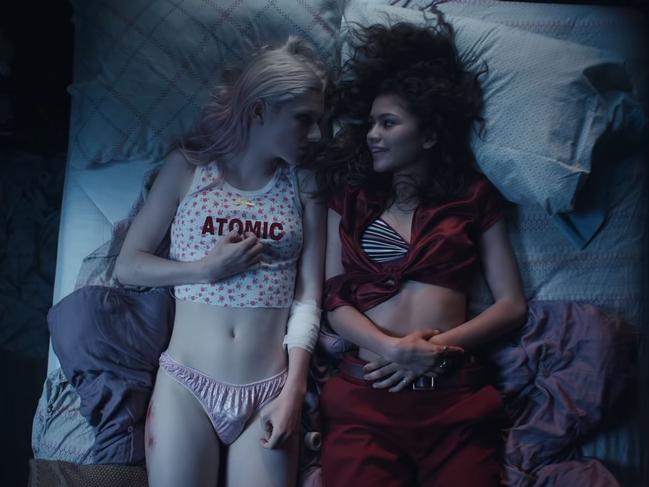
Getting out in front and watching along with your older teens could help
“Really trying to stop your 17 or 18-year-olds from watching it is like trying to stop a train after it’s left the station, you can’t control whether they’re going to watch it,” Dr Murrihy says.
“I think parents have to get on the front foot, they need to go to their teenager and ask ‘are you planning on watching it or have you watched it?’ and if they plan to watch it consider watching it with them and have a dialogue about.”
A shared viewing experience could make it easier for kids to open up to their parents if they are struggling.
“If you’ve got a good connection, when they have a problem, they’ll come to you,” Dr Murrihy says.
The global pandemic, which has seen kids locked down in their homes for weeks, and in some states months, at a time, has only increased the number of teens feeling vulnerable.
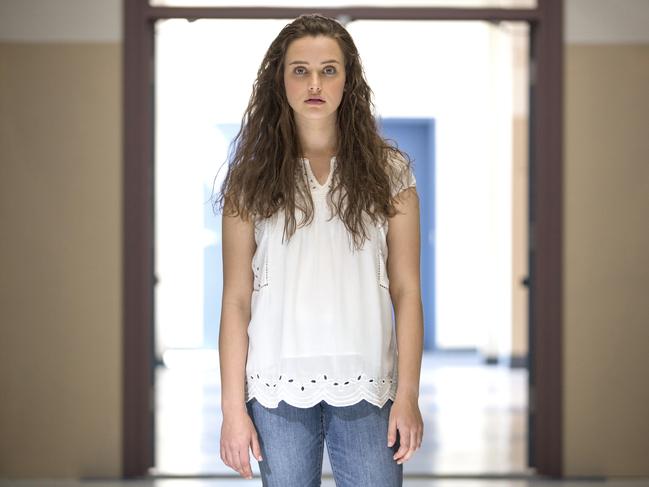
Without the daily face-to face interaction with friends, classmates and school mentors, and deprived of many of the rites of passage such as school formals, depression and anxiety levels amongst young people has increased substantially since the pandemic began.
“COVID’s the other thing of course, you’ve got high rates of mental health problems in Australia for young people — one in seven — then you’ve got a whole lot more on the borderline who are vulnerable,” Dr Murrihy says.
“We know that it just takes an additional stress sometimes to tip them over into full blown mental illness.”
Euphoria is a no-holds-barred dive into the lives of a group of American teens who are grappling with a range of social and personal issues. It stars former Disney darling Zendaya and Australian Jacob Elordi.
Critics praised the series, especially the performances of Zendaya and Hunter Schafer, and applauded it for tackling such difficult topics without fear.
In stark contrast parent groups were having none of it. The US Parents Television Council was outraged and just one of the groups who called for the show to be banned.
“HBO, with its new high school-centred show Euphoria, appears to be overtly, intentionally, marketing extremely graphic adult content — sex, violence, profanity and drug use — to teens and pre-teens,” the group’s president Tim Winter told Fox News last year, adding that HBO was “taking the most extreme conduct that a teenager can experience and normalising it.”
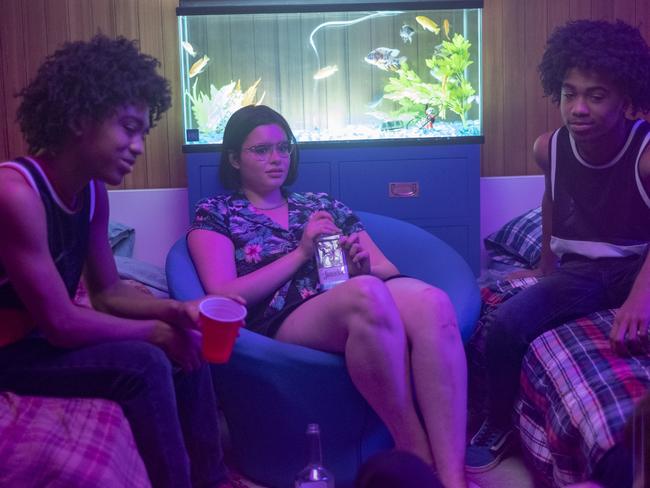
Dr Murrihy agrees the circumstances the kids in Euphoria find themselves in are at the extreme end. She wants parents to remember it’s a drama and the issues on screen and their severity don’t necessarily echo what’s happening in the real world.
“It’s alway important for parents to keep in mind what the real figures are,” she says.
”Drug use to the degree Rue (Zendaya) is entertaining is very rare. It’s a matter of keeping these things in perspective.”
With the advent of streaming services and cable networks which no longer have to pander to the sensitivities of advertisers, stories seen on television have in recent years become far grittier and more uninhibited than ever before. Euphoria is one such show you would never see on a commercial network.
But this new freedom was swift and came as a shock to the mental health industry — especially those dealing with younger, more vulnerable members of the community.
Dr Murrihy says when Netflix first aired the controversial suicide series 13 Reasons Why in 2017, it was a wake-up call.
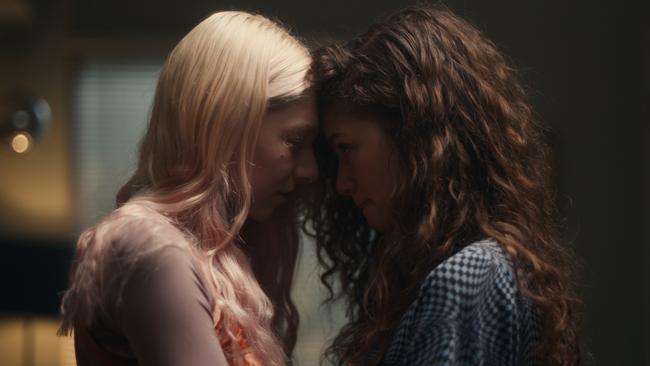
“This content came out that was far more advanced than anything we’d seen before, there was a lot of high risk content,” she says.
“I think we have to be aware that television shows can be consumed instantaneously now and they can have an immediate impact on public health, particularly with teenage viewers.”
It’s why Dr Murrihy stresses that shows such as Euphoria and 13 Reasons Why can be influence young minds and must be treated as any other stressor that can impact a teenager.
“Teens are particularly vulnerable when it comes to binge watching, they get immersed in the story and they have a strong effect on them,” she says.
“Their brains are still developing, they struggle more to inhibit certain emotions and actions so I think we do have to be aware of this as a public health issue.”
* People aged 12-25 seeking help for a mental health problem should contact headspace at www.headspace.org.au

